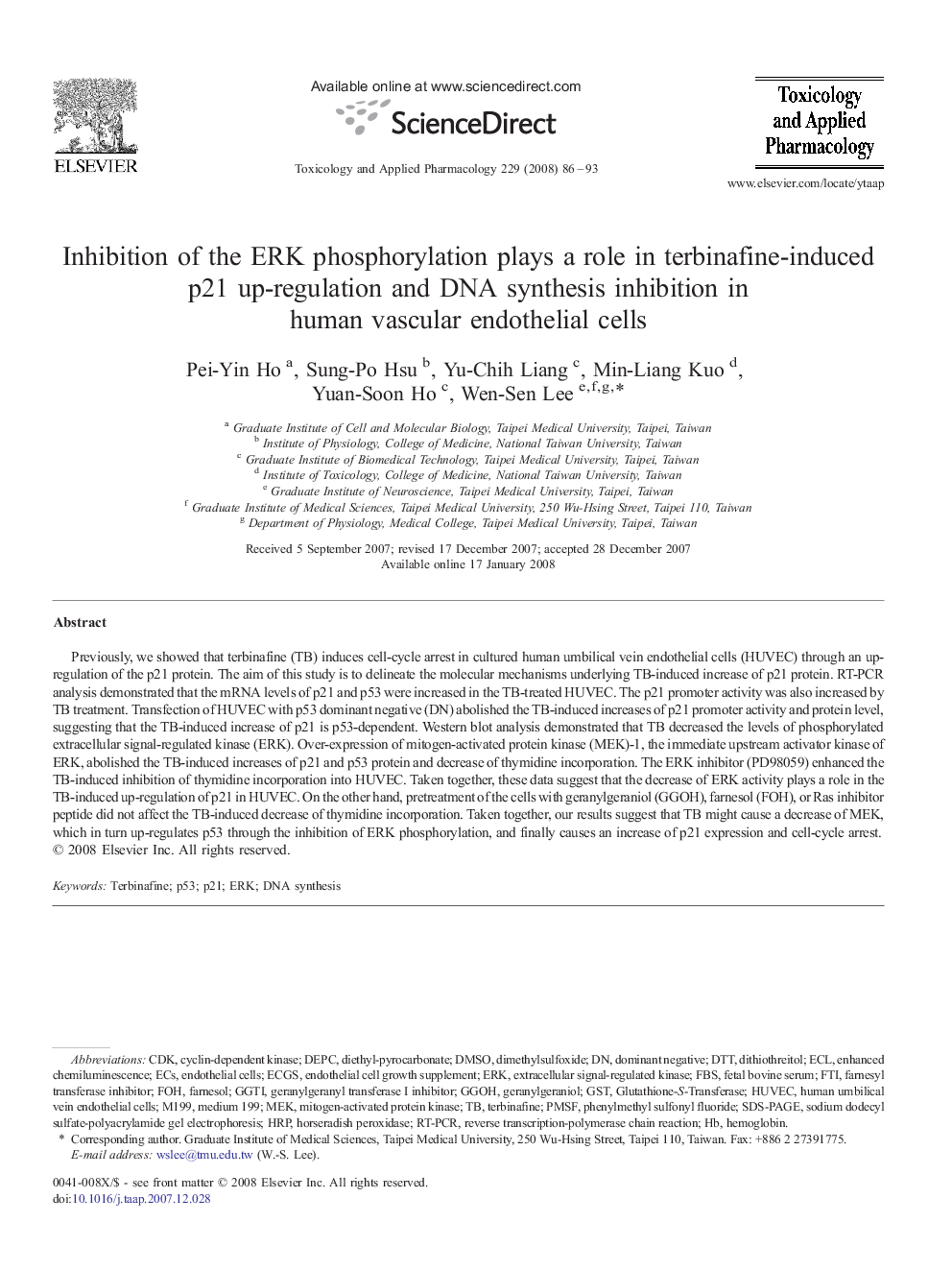| Article ID | Journal | Published Year | Pages | File Type |
|---|---|---|---|---|
| 2571446 | Toxicology and Applied Pharmacology | 2008 | 8 Pages |
Previously, we showed that terbinafine (TB) induces cell-cycle arrest in cultured human umbilical vein endothelial cells (HUVEC) through an up-regulation of the p21 protein. The aim of this study is to delineate the molecular mechanisms underlying TB-induced increase of p21 protein. RT-PCR analysis demonstrated that the mRNA levels of p21 and p53 were increased in the TB-treated HUVEC. The p21 promoter activity was also increased by TB treatment. Transfection of HUVEC with p53 dominant negative (DN) abolished the TB-induced increases of p21 promoter activity and protein level, suggesting that the TB-induced increase of p21 is p53-dependent. Western blot analysis demonstrated that TB decreased the levels of phosphorylated extracellular signal-regulated kinase (ERK). Over-expression of mitogen-activated protein kinase (MEK)-1, the immediate upstream activator kinase of ERK, abolished the TB-induced increases of p21 and p53 protein and decrease of thymidine incorporation. The ERK inhibitor (PD98059) enhanced the TB-induced inhibition of thymidine incorporation into HUVEC. Taken together, these data suggest that the decrease of ERK activity plays a role in the TB-induced up-regulation of p21 in HUVEC. On the other hand, pretreatment of the cells with geranylgeraniol (GGOH), farnesol (FOH), or Ras inhibitor peptide did not affect the TB-induced decrease of thymidine incorporation. Taken together, our results suggest that TB might cause a decrease of MEK, which in turn up-regulates p53 through the inhibition of ERK phosphorylation, and finally causes an increase of p21 expression and cell-cycle arrest.
